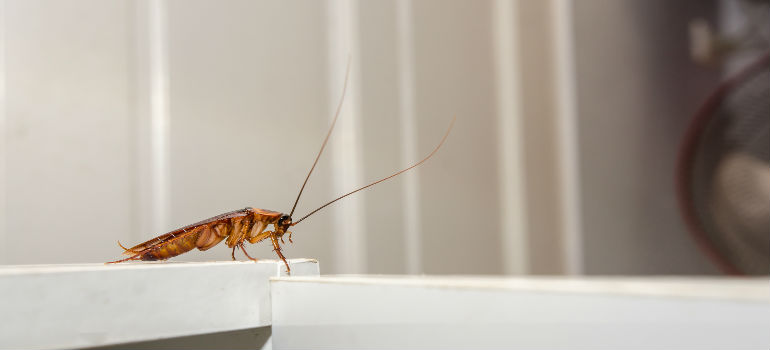Pest infestation in rented accommodation
Depending on your situation, either you or your landlord could be responsible for a pest infestation in your home. Find out who is accountable for your pest problem in the UK.
Learn more about common environmental health issues and the steps you can take. Our expert lawyers are ready to help—call us today on 0161 697 5959 for FREE legal advice on how we can assist with your housing disrepair claim.
It’s FREE for tenants – No Win, No Fee. We handle claims for damp, mould, heating issues, electrical faults, infestations, leaks, windows, doors, and structural problems. Start your claim today by filling out our form.
Find Out If You Are Eligible To Claim For Repairs and Compensation
How to make a claim for Pest infestation?
You should first notify your landlord of the pest infestation that you are experiencing and allow them a reasonable time to investigate and resolve the issue. If your landlord has failed to rectify the issue or even try to then you are within your rights to start a housing disrepair claim against your landlord.
If you are having such problems then contact us and we can offer you expert legal advice on a no-win no fee basis. We will assess the circumstances and advise on the likelihood that the pest or vermin is your responsibility or your landlord’s and thus, whether you have grounds to bring a housing disrepair claim. If you do and you decide to go ahead with it then we will take your claim through the Pre-Action protocol process and keep you informed along the way. We will help you make a claim for any repairs that need doing if that is causing the pest or vermin to enter. We will also help you make a claim for compensation for your distress, financial loss and illness that you may have suffered. Use our housing disrepair calculator to check how much compensation you may win.
You could of course start the claim yourself but we always recommend you have legal representation to fight your corner and advise you along the way. With it being no win no fee there is nothing for you to pay if you do not succeed and if you do, then we only deduct a portion of your compensation so you don’t pay anything upfront, only at the end if you win and the amount we deduct will have been agreed with you.


Who is responsible for a pest infestation?
This depends on the specific circumstances of the case. In some cases, the landlord or property owner may be responsible for controlling a pest infestation. The landlord’s responsibility for pest control will depend on the specific terms of the rental agreement and applicable laws and regulations. In general, however, landlords are typically responsible for maintaining the rental property in a habitable and safe condition, which may include taking steps to prevent and control pest infestations.
For example, if the infestation is due to a problem with the building or its surroundings, such as a failure to seal up entry points or maintain the property, the landlord or property owner may be responsible for controlling the infestation.
In other cases, the tenant may be responsible for preventing and controlling a pest infestation in their home. For example, if the infestation is due to the tenant’s failure to keep their home clean and free of sources of sustenance for pests, they may be responsible for controlling the infestation.
If the infestation is due to a problem with the community or local environment, such as a mosquito infestation caused by a nearby pond, the local government or other authorities may be responsible for controlling the infestation.
Are tenants responsible for dealing with the infestation?
Suppose the pest infestation is due to the tenant’s actions, such as a failure to keep the rental unit clean and free of sources of sustenance for pests. In that case, the tenant may be responsible for controlling the infestation. In this case, the landlord may be able to require the tenant to take appropriate steps to control the infestation.
Live in Furnished Accommodation
If you live in a furnished rented property and the pest infestation problem was there before you moved in for a living. It may be your landlord’s responsibility to deal with it.
Your landlord is responsible for ensuring that your home is habitable on the date they give it to you. This could be a sign that your landlord is not fulfilling their duty. However, this applies only at the beginning of a tenancy. It wouldn’t apply later if there was a problem.
What are the Different Types of Pest Infestation?
There are several signs that may indicate the presence of pests in your home:
Sightings of the pests themselves: Seeing the pests, whether alive or dead, is often the most obvious sign of an infestation.
Most pests, such as mice and rats, leave droppings behind as they move around. These droppings can be a clear sign that there are pests.
Pests can damage food and other household items. You may see chewed holes in packaging, furniture or wires etc.
Some pests leave a smell, which is often a sign that they are present. Cockroaches for example can produce a strong, musty smell. Rats and mice often have an ammonia (urine) smell.
Many pests, such as birds and rodents, build nests to live and reproduce. These are often more difficult to find as they are usually hidden in places you don’t normally see, such as behind cluttered storage areas or ceiling voids.
Some pests, such as rats and mice, can make noise as they move around in walls and attics.
Sometimes, pets can sense the presence of pests and may behave unusually as a result. For example, a cat may seem unusually interested in a certain area of a room or may stare at a spot in a room.
Some pests, such as ticks and mosquitoes, can cause health problems in humans and animals. If you or your pets are experiencing unusual health problems, it is possible that pests may be a part of the problem.
What is a pest infestation?
A pest infestation is defined as animals or insects that can cause destruction to your home and more often than not, affect your health. Infestations can cause damage to property, spread diseases, and be a nuisance to people living or working in the affected area. Pests can be very difficult to control, and it is often necessary to use a combination of methods, such as chemical treatments, physical barriers, and traps.
Bed bug infestations
Bed bugs are small, reddish-brown insects that feed on the blood of humans and animals. They can be difficult to control and can cause skin irritation and other health problems.
Bird infestations
Birds such as pigeons and sparrows can cause damage to buildings and carry infectious diseases such as salmonella and tuberculosis.
Rodent infestations
Rodents such as mice and rats can cause damage to buildings and spread diseases.
Insect infestations
Insects such as ants, cockroaches, and flies are common pests that can infest homes.
Termite infestations
Termites are insects that feed on wood and can cause serious damage to buildings.
Mosquito infestations
Mosquitoes are insects that can transmit various dangerous and infectious diseases.
Tick infestations
Ticks are small, spider-like creatures that can attach themselves to humans and animals and transmit diseases such as Lyme disease.
Flea infestations
Fleas are small, wingless insects that feed on the blood of humans and animals. They can cause irritation and other health problems.
Start Your Pest Infestation Claim Today
Don’t suffer in silence if your landlord has neglected your pest infestation problem. You deserve to live in a warm, comfortable home. By making a pest infestation claim, you can force your landlord to take action and potentially receive compensation for the problems you’ve faced.
Our housing disrepair solicitors have helped countless tenants across the UK resolve their heating issues and claim the compensation they deserve. Start your claim today by contacting our team for a free consultation.
You can contact our solicitors on 0161 697 5959. This is our housing disrepair claims line and you will get to speak to a specialist right away.
You will talk to one of our friendly and experienced advisers, who will happily answer all your questions. Please note that the legal advice we provide will be on a no-win no-fee basis. You can also get in touch with us via email and live chat.
Our solicitors look forward to hearing from you and helping you get the compensation you deserve.

